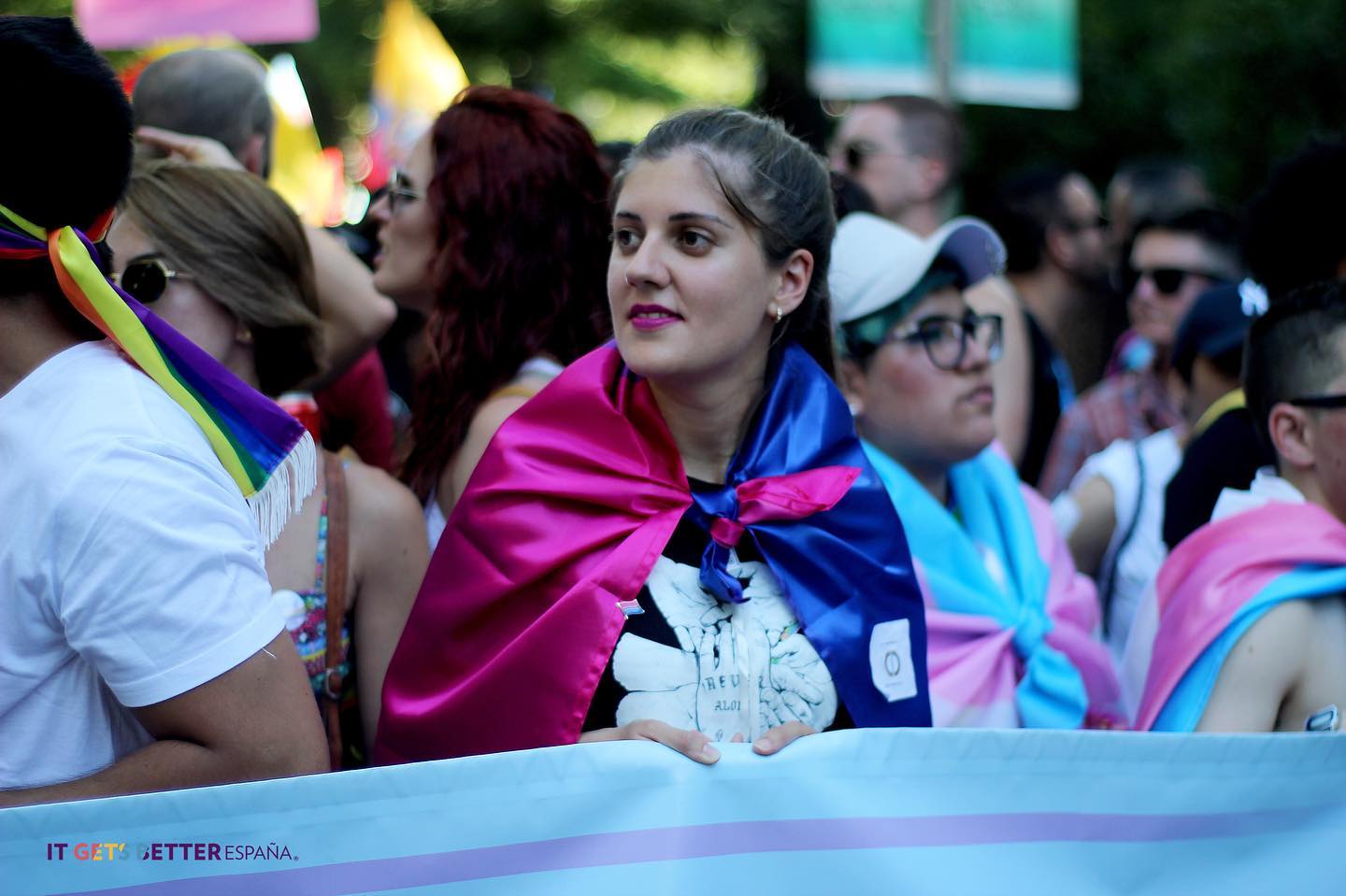By Laura Henares Vinaches
I remember when I first started to read about the overturning of Roe v. Wade. It seemed something very distant from my reality and my country (I live in Spain) and I recognize I didn’t care so much. Besides, taking away the right to have a safe and desired abortion in a supposedly “advanced” country like the USA seemed something out of a movie for me, something unbelievable and exaggerated. As days passed by, however, I realized it was something bigger than I thought. Cisgender women and LGTBIQ+ people kept claiming the dangers of overturning Roe v. Wade in regards to bodily autonomy, freedom, and health choices. Finally, it happened and the unthinkable started to become a reality: Roe v. Wade was overturned and abortion bans were spreading across the USA. An established right was removed from part of American society.
At first, I couldn’t believe it. How was one of the most self-proclaimed free countries in the world letting this happen? How was Christian conservative ideology limiting the bodily autonomy of thousands of people in the USA in such a flagrant way? On one hand, I felt alarmed and agitated by the news, but on the other hand I felt relieved and safe since this wasn’t happening in Spain. However, a little voice in my head started to ask some questions: Was I really safe here? Did I really have full body autonomy in Spain? Was the erasure of abortion or reproductive rights something so distant from my reality? Did ALL women here really have the same reproductive rights? Was Spain, supposedly one of the most LGTBIQ-friendly countries in the world, really that much more egalitarian?
If I look over the past decades in Spain, there is something I can’t deny: as a bisexual cisgender woman with a transmasculine partner, I didn’t have the same rights as cisgender heterosexual women regarding reproductive care. Until November 2021, only cisheterosexual couples with demonstrable health problems with conceiving could access Assisted Reproductive Technology (ART) via the public health system. The law explicitly stated that only women who couldn’t conceive naturally due to fertility-related disorders, who had a high risk of sexually transmitting a disease, or who has spent a year of trying to conceive unsuccessfully by sexual intercourse with PIV penetration (yes, the law explicitly stated the PIV penetration part) could be eligible to access ART by the public health system. Before November 2021, single women and couples formed by two people with uteruses (like mine) didn’t have free access to reproductive care and had to spend a great amount of money in private clinics or adoption services if they wanted to have children. My brother and my sister-in-law could have had a baby with the help of the State if they weren’t able to conceive, but my partner and I would have been excluded from the public health system only for being LGTBIQ+. Finally, at the end of 2021 everything changed. A new law was passed by the PSOE government, thus single cisgender women and LGTBIQ+ people with the ability to gestate were allowed to access ART for free.
But there’s a scary truth behind this story: just as half of the USA did not always have abortion rights banned, LGTBIQ+ people have not always been excluded from public ART in Spain. We had the right to access public ART until 2014 and then we lost it. In October 2014, the PP government unilaterally passed a new law denying access to ART to single women and LGTBIQ+ people. Thousands of women and trans people were denied something they already had taken for granted, as is happening now to thousands of women and trans people in America with abortion. In Spain we got back our right, but we don’t know when and how Americans will get back their right to abortion. All this led me to some conclusions:
Our rights aren’t an untouchable and fixed monolith and never will be. As long as there are people with more power than us who want to take away our rights, we will be in danger of losing some level of bodily autonomy and freedom.
We can’t take our rights, privileges, and freedom for granted. When you are part of a marginalized group in our society (BIPOC, women, LGTBIQ+…) you can’t afford the luxury of staying calm and confident in the good faith of our governments and institutions. We need to fight every day to maintain our rights and to stop the actions of those who are trying to spread their hate and want us silenced, invisible, and erased.
There’s also hope. We may lose some rights and freedom now, but if we stay strong and refuse to be silent and still, we may take them back again. A look at our history proves this. Every time a marginalized group has achieved some rights there has been a violent response from the normative group. Some rights may be taken away, but after some time the marginalized group often takes them back again and gains some more rights. That’s how bodily autonomy and freedom have been advanced over time. It’s an exhausting process, but we can’t give up if we want to have the same rights as everybody else.
We need to create strong, diverse, inclusive, vibrant, and committed communities to fight against hate and bigotry. Without our community, we lack clear direction and are less powerful. A single person against a crowd may seem a waste of time, but lots of crowds united to spread tolerance, love, and respect may change the world for the better.
Laura Henares Vinaches has a Degree in Translating and Interpreting Studies and she’s getting a diploma in Social Work, her true passion. She loves bisexual activism, social writing, and dancing and in her free time she volunteers for It Gets Better España, a non-profit organization against LGTBIQ+ bullying.

